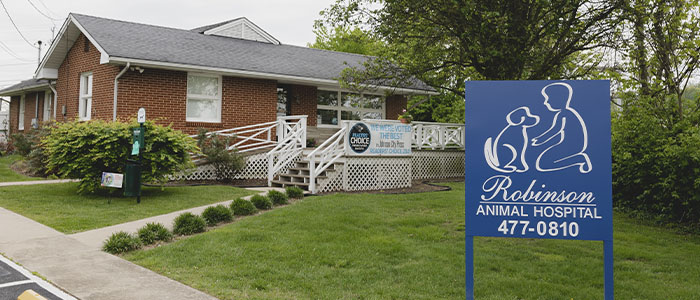Is Your Small Mammal Pet Sick?
Guinea pigs, hamsters, rabbits, ferrets, and other pocket pets may be tiny, but when they’re unwell, it can feel like a huge concern. As mostly prey animals, small mammals instinctively hide illness, making it harder for pet owners to spot when something’s wrong. As an exotic veterinarian, Robinson Animal Hospital wants pet owners to be able to recognize a sick small mammal pet.
Signs You May Have a Sick Pocket Pet
In rabbits and pocket pets, even slight behavior changes in your pet could signal illness. Because illnesses in these species often progress rapidly, timely recognition of symptoms and access to specialized care can significantly improve health outcomes for your small mammal pet. Here are some warning signs that your tiny companion could be ill:
- Refusal to eat or a decrease in appetite
- Smaller, fewer, or abnormal droppings
- Weight loss, especially sudden or unexplained
- Increased hiding or inactivity
- Labored breathing or nasal discharge
- Excessive itching, bald patches, or skin crusts
- Drooling or visible dental misalignment
- Head tilting or difficulty maintaining balance
Because these animals are so small, minor symptoms can quickly turn into major health problems. If you notice any of these signs of illness or health conditions, contact an exotic veterinarian for care.
Health Conditions in Small Mammal Exotic Pets
Dental Disease
Rabbits and rodents have teeth that never stop growing. If not properly worn down through diet or chew toys, their teeth can become overgrown and cause painful mouth injuries. Symptoms include difficulty eating, drooling, or facial swelling.
Ear Infections
Lop-eared rabbits are particularly prone to ear infections, which can cause balance issues, head tilt, or discharge. These need veterinary treatment to avoid deeper inner ear or neurological problems.
Mites and Lice
Hair loss, skin irritation, and excessive scratching are red flags for parasitic infestations. Some mites are even contagious to other pets.
Respiratory Illness
Common in rabbits and often referred to as “snuffles,” respiratory infections can become chronic if untreated. Look out for sneezing, eye or nose discharge, and noisy breathing.
Gastrointestinal Stasis
This condition, where the digestive system slows or stops, is a medical emergency in rabbits and guinea pigs. Triggered by stress, pain, or poor diet, it leads to bloating, lethargy, and reduced appetite. Fast intervention by an exotic veterinarian is necessary.
Urinary Disorders
Blood in the urine, strong smells, or straining can point to pocket pets having infections or bladder stones. These issues require imaging and prompt treatment to prevent kidney damage.
Proactive Tips for Pocket Pet Owners
- Weigh your pet weekly and track results
- Monitor droppings for quantity and consistency
- Offer a veterinary-approved diet rich in fiber
- Watch for changes in behavior or appearance
- Schedule annual wellness exams, even if your small mammal pet seems healthy
Small Mammal Veterinary Care in Johnson City and Gray, TN
Your small mammal may not be able to tell you when they’re feeling unwell, but you can learn to spot the signs and act fast. With the help of a trusted exotic veterinarian, the smallest pets can lead happy lives. Robinson Animal Hospital has veterinary services for pocket pets in Johnson City and Gray, as well as from surrounding areas like Elizabethton and Erwin. Contact us to schedule an appointment for your small mammal pet.







